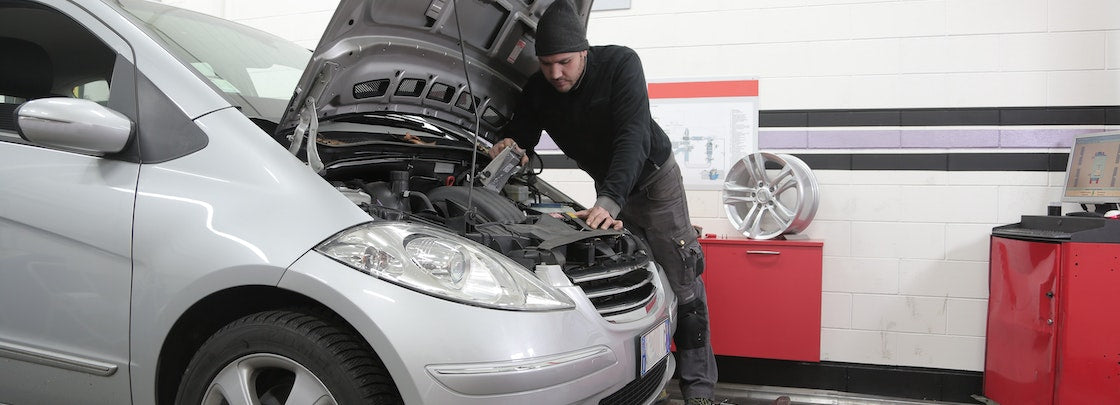Key Takeaways
- Adhere to your manufacturer’s recommended maintenance schedule to identify issues before they escalate into costly repairs.
- Maintain optimal performance and protection by keeping up with fluid levels, tire care, and cleanliness.
- Address minor issues promptly to prevent major repair headaches in the future.
- Invest in high-quality replacements and store your car properly during extended periods of downtime.
Taking proactive steps to protect and care for your vehicle is essential if you want it to remain reliable and efficient for years to come. Routine maintenance, mindful driving, and making wise decisions at every turn will help you enjoy a safer, longer-lasting ride—and reduce those painful, unexpected repair bills. When issues do arise, knowing where to find trusted auto repair can make a big difference in preserving your car’s longevity and value. By committing to key habits and understanding your vehicle’s needs throughout its lifetime, you’ll not only safeguard your investment but also create a smoother and more enjoyable driving experience. Whether your goal is to keep your car running past the 200,000-mile mark or simply to avoid frequent breakdowns, these strategies will keep you—and your vehicle—on the road.
1. Follow a Regular Maintenance Schedule
Following your car’s recommended maintenance schedule is the single most effective way to prevent major mechanical issues and protect your investment. Regular oil changes, engine filter replacements, belt inspections, and brake checks should be performed according to your manufacturer’s guidelines. These simple steps, as highlighted by Kelley Blue Book, keep your engine running smoothly and can help you avoid the inconvenience and expense of an unexpected breakdown.
3. Monitor and Maintain Fluid Levels
Fluids are your car’s lifeblood, responsible for lubricating parts, regulating temperatures, and providing hydraulic pressure. Neglecting to maintain oil, coolant, transmission, and brake fluids puts your engine and other systems at risk of severe damage. Get into the habit of checking your fluid levels each month, and look for leaks under your car in parking spots and driveways. Topping up or replacing fluids at recommended intervals will help keep your vehicle running efficiently and reliably.
4. Keep Your Vehicle Clean
Regular cleaning isn’t just about aesthetics; it directly affects your car’s longevity. Road salt, grime, and bird droppings can erode your paint job, leading to rust and corrosion, particularly in colder climates. As noted by Car and Driver, washing your car regularly and applying a coat of wax every few months helps maintain protection. Clean the interior as well to prevent buildup on upholstery, controls, and vents, all of which can deteriorate if ignored.
5. Pay Attention to Tire Health
Your tires are the only part of your car that contacts the road, so they deserve special attention. Check tire pressure monthly, inspect tread depth, and watch for uneven or excessive wear. Proper inflation and regular tire rotations—notably every 5,000–8,000 miles—will even out tread wear and help you get the most miles out of every set. This simple practice also improves handling, fuel economy, and safety.
read more : Crypto30x Exploring the Future of High Leverage Digital Asset Platforms
6. Address Issues Promptly
Unusual sounds, warning lights, vibrations, or changes in performance are often the first signs of trouble. Don’t ignore them—delaying can lead to costlier, more complex repairs and could even leave you stranded. Schedule an inspection with a qualified mechanic as soon as possible when something seems off.
7. Use Quality Parts and Fluids
It may be tempting to opt for cheaper replacement parts or fluids, but using high-quality, vehicle-specific products is worth the investment. OEM (Original Equipment Manufacturer) or trusted aftermarket brands offer reliability, better fit, and endurance needed to protect critical systems. Premium fluids also keep your engine, transmission, and brakes functioning at their best, so you get the most out of every mile.
8. Store Your Vehicle Properly
If you plan to store your car for weeks or months, proper preparation is essential. Park in a dry, covered area or use a weather-resistant car cover to protect your vehicle from the elements. Inflate your tires to the recommended pressure, disconnect the battery to prevent drainage, and fill your gas tank with stabilizer if you’ll be away for an extended period. This careful approach minimizes the risk of flat spots, corrosion, and battery failure.
By taking these actionable steps, you’ll help extend your vehicle’s lifespan, enjoy safer travels, and enhance your overall driving experience. Consistent care, regular inspections, and partnering with a reputable auto repair shop ensure that both you and your vehicle are ready for the road ahead—no matter how many miles lie ahead.




